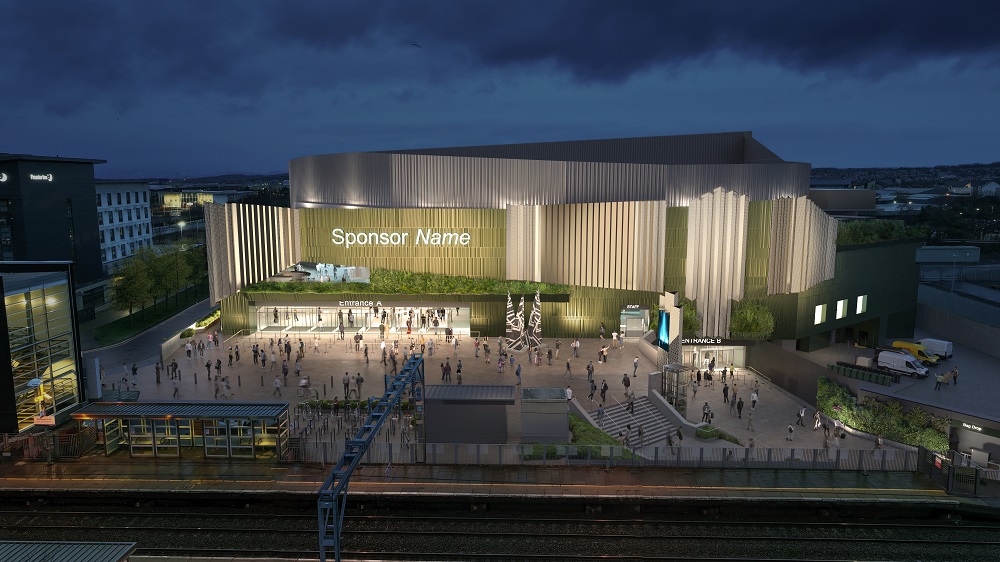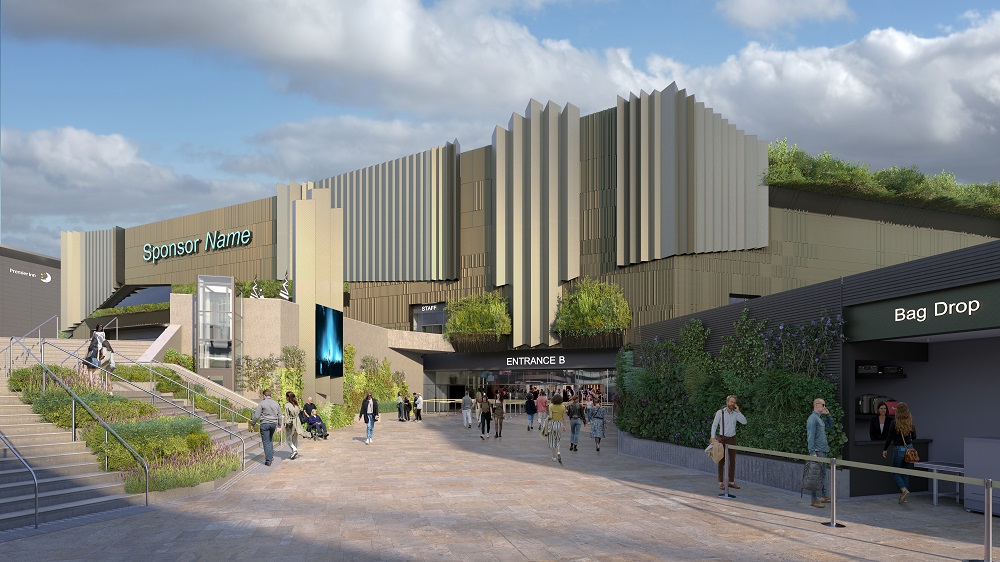Planning permission granted for Edinburgh Park Arena

Live sport and entertainment firm AEG Europe has received approved planning permission for a new state-of-the-art 8,500-capacity arena in Edinburgh Park.
The City of Edinburgh Council announced the decision at midday yesterday after the application was put forward with a recommendation for approval following an extensive initial planning consultation period during which the submission was met with a wide range of support.
The owners of London’s O2 Arena and Uber Arena in Berlin are working with developer and site owner Parabola, on the new arena, which will span 18,500 square metres of regeneration project area of Edinburgh Park to the West of the Scottish capital.
AEG Europe’s latest venue investment is expected to bring an estimated £520 million per annum in gross value to the Edinburgh economy. It is also estimated that the arena would inject a further £83m per annum back into the local economy, through the 700,000+ visitors the arena is expected to attract each year, based on external assessment. It will also create 1000+ operational jobs in and around the Arena.
Alex Hill, president and CEO of AEG Europe, said: “We are delighted to have been granted planning consent for a cutting-edge new venue for Edinburgh. Having worked closely with the City of Edinburgh Council, we strongly believe the arena will deliver huge benefits to the city throughout every stage of the building’s life cycle – from development to completion, for years to come when we’re bringing the world’s best artists to the Scottish stage.”
Alistair Wood, executive vice president, real estate and development at AEG Europe, added: “We thank the City of Edinburgh Council for their forward-thinking and proactive approach and for their shared vision of a new best-in-class arena for Edinburgh. We now turn our attention to expanding on these plans through the appointment of an external contractor, as well as seeking naming rights partners and finalising funding partners.”

Council leader Cammy Day said: “Edinburgh already boasts a great set of venues in the shape of Murrayfield, the Usher Hall and our theatres and increasingly, the world’s biggest stars are choosing the Capital. From Beyonce and Harry Styles to Taylor Swift’s record-breaking run, not forgetting our annual world famous festivals, Edinburgh has more than proved itself as a top destination for international acts.
“We’ve been concentrating on developing our cultural offering and transport links in recent years to better connect the city, and the moment is right now to build on that. We’ve been crying out for a mid-size indoor arena but we have to make sure the infrastructure is in place for that and it has to be the right site. This arena at Edinburgh Park offers the answer and the planning application received unanimous support from Councillors.
“There is no doubt this site has some of the best transport links in Scotland and it easy to picture audiences travelling from home or the airport by tram, train and bus to West Edinburgh for a show. At the other end of the tram line to the North we have another great asset in the Leith Theatre and in the city centre the Ross Bandstand. Smaller music venues like these are also important to the fabric of Edinburgh’s live music offering and I remain committed to championing for their investment. They are two prime examples of projects which I believe should benefit from Edinburgh’s visitor levy when it is in place.”
As part of the planning phase, AEG Europe Guest Experience and Sustainability experts have been integral in ensuring the venue design and future construction reflects unprecedented fan-first and sustainability measures, with further ambitions of ensuring Edinburgh Park will be the UK’s most sustainable arena.
Edinburgh Park Arena will be privately funded and AEG Europe are finalising funding partners to bring their vision for a new home for life music in Edinburgh to life. Once an external contractor has been appointed and financed raised, construction is proposed to begin in 2025 and will continue over the course of two years, with the aim of delivering the first event in 2027.























